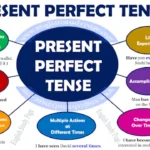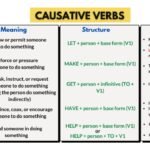Use Of Can In Hindi: “Can” का हिंदी मीनिंग “सकना” होता है, जिस भी हिंदी वाक्य के अंत में”सकता है ” “सकती है” या “सकते है” लगा रहता है, वहा पे “Can” का उपयोग किया जता है|
मॉडल क्रियाओं के विभिन्न प्रकार हैं लेकिन आज हम कैन के बारे में चर्चा करेंगे, कैन एक मॉडल क्रिया है, इसका अर्थ है आशा / संभावना। जैसे मैं बाजार जा सकता हूँ, यह संभावना है कि वह बाजार जा सकती है लेकिन हो सकता है कि वह बाजार न जा सके।
यदि आप अंग्रेजी सीखना चाहते हैं तो मॉडल क्रिया अंग्रेजी व्याकरण का सबसे महत्वपूर्ण हिस्सा है, बिना मॉडल क्रिया सीखे आप अंग्रेजी नहीं सीख पाएंगे। प्रत्येक क्षेत्र में मॉडल क्रिया आपकी अंग्रेजी भाषा और आपके व्याकरण को बेहतर बनाने में मदद करती है, मॉडल क्रिया हमेशा अंग्रेजी पाठ्यक्रम में उपयोग की जाती है, तो चलिए कैन के बारे में बात करते हैं, आज हम कैन के बारे में जानेंगे|
Use Of “Can” All Information, Rules And Sentences “Can” का उपयोग कहा करे?, कैसे करे? और कब करे?
नीचे हमने “कैन” से संबंधित सभी नियमों को विस्तार से समझाया है। अगर आपको समझने में कोई समस्या है तो आप उदाहरणों को पढ़कर भी इसे समझ सकते हैं।
7 Rule To Use Can (“Can” के 8 नियम )
Rule 1: To Show a present ability or Capacity.- किसी मौजूदा योग्यता या क्षमता को दर्शाना।
Examples;
- मैं गाना गा सकता हूँ। I can sing.
- वह टेनिस खेल सकती है।- She can play tennis.
- तुम यहाँ बैठ सकते हो। – You can sit here.
- वे बहुत तेज दौड़ सकते हैं। -They can run very fast.
- उसे अच्छी अंग्रेजी बोलने की क्षमता है।- He can speak good English.
- हम यह काम कर सकते हैं। -We can do this work.
- तुम्हें वहाँ जाने की अनुमति है। – You can go there.
- मेरी बहन बहुत अच्छी पेंटिंग कर सकती है। -b My sister can paint very well.
- वह उस समस्या को बिना मदद के हल कर सकता है। – He can solve that problem without any help.
- तुम्हें इसे बिना देखे समझने की क्षमता है। – You can understand it without seeing.
Rules 2: To get Permission (Family Or circle Used) अनुमति प्राप्त करना (परिवार या सर्कल का उपयोग किया जाता है)
Examples :
- Can I borrow your car to go to the market?
- क्या मैं बाजार जाने के लिए आपकी कार उधार ले सकता हूँ?
- Can we use your backyard for the barbecue party?
- क्या हम आपके पिछवाड़े का उपयोग बार्बेक्यू पार्टी के लिए कर सकते हैं?
- Can she take a day off to attend her sister’s wedding?
- क्या वह अपनी बहन की शादी में शामिल होने के लिए एक दिन की छुट्टी ले सकती है?
- Can they stay at our place for the weekend?
- क्या वे अपने लिए हमारे पास वीकेंड के लिए रुक सकते हैं?
- Can you lend me your laptop for the presentation?
- क्या आप मुझे अपना लैपटॉप प्रस्तुतिकरण के लिए उधार दे सकते हैं?
- Can I invite my friends over for a sleepover?
- क्या मैं अपने दोस्तों को रात भर के लिए बुला सकता हूँ?
- Can we bring our dog to the family picnic?
- क्या हम अपने कुत्ते को परिवार पिकनिक में ले आ सकते हैं?
- Can he use your workshop to fix his bike?
- क्या वह अपनी बाइक ठीक करने के लिए आपकी वर्कशॉप का उपयोग कर सकता है?
- Can you extend the deadline for submitting the project?
- क्या आप परियोजना जमा करने की अंतिम तिथि बढ़ा सकते हैं?
- Can she join us for the weekend getaway?
- क्या वह हमारे साथ वीकेंड के लिए बाहर जा सकती है?
Rules 3: To give permission- अनुमति देना
Examples :
- तुम जा सकते हो।
- You can go.
- हमें यहाँ बैठने की अनुमति है।
- We may sit here.
- तुम्हें अपनी बहन को बुलाने की अनुमति है।
- You may call your sister.
- हमें अपनी गाड़ी का उपयोग करने की अनुमति दी गई।
- We were given permission to use our car.
- वह अपने बच्चों को विद्यालय लेकर जा सकती है।
- She can take her children to school.
- मैंने उसे अपने घर में रुकने की अनुमति दी।
- I allowed him to stay at my house.
- आपको इसे खरीदने की अनुमति है।
- You are allowed to buy it.
- उन्हें अपने दोस्तों के साथ खेलने की अनुमति दी गई।
- They were allowed to play with their friends.
- तुम अपने सपनों को पूरा करने की अनुमति प्राप्त कर सकते हो।
- You can obtain permission to fulfill your dreams.
- उसे अपने काम को समाप्त करने की अनुमति मिली।
- He was granted permission to finish his work.
Rules 4: To Prohibit Strictly – सख्ती से मना करना
Examples :
वे यहाँ बाहर जाने को नहीं कर सकते।
They cannot go out here.
तुम्हें अब वहाँ खेलने को नहीं कर सकते।
You cannot play there now.
हमें अपने बच्चों को टीवी देखने को नहीं करना चाहिए।
We should not allow our children to watch TV.
उसे अपने कमरे में अध्ययन करने को नहीं करना चाहिए।
He should not study in his room.
तुम्हें यहाँ खाने को नहीं कर सकते।
You cannot eat here.
उसे मेरी किताबें लेने को नहीं करना चाहिए।
He should not take my books.
वह उन्हें अपने काम में मदद करने को नहीं कर सकता।
He cannot help them with their work.
तुम्हें इसे खोलने को नहीं करना चाहिए।
You should not open it.
हमें यहाँ पार्टी करने को नहीं करना चाहिए।
We should not party here.
उसे यहाँ अध्ययन करने को नहीं करना चाहिए।
He should not study here.
Rules 5: To Show Possibility Along with Recourses – संसाधनों के साथ संभावनाएँ दिखाना
Examples :
उसे इस परीक्षा में पास होने की संभावना नहीं है।
He can’t pass this exam.
इस समस्या का समाधान करने की हमें संभावना नहीं है।
We can’t solve this problem.
उसे अपने व्यापार में सफलता प्राप्त करने की संभावना नहीं है।
He can’t achieve success in his business.
इस उपचार से उसको पूरी तरह से ठीक होने की संभावना नहीं है।
There isn’t a possibility of him getting completely cured with this treatment.
इस उपाय से हमें समस्या का समाधान करने की संभावना नहीं है।
We can’t solve the problem with this approach.
इस विषय में उसको अच्छे अंक प्राप्त करने की संभावना नहीं है।
He can’t obtain good marks in this subject.
उसे उसकी पत्नी से वापस मिलने की संभावना नहीं है।
He can’t expect to meet his wife again.
इस समस्या को दूर करने की उनकी संभावना नहीं है।
They can’t eliminate this problem.
उसको उस प्रस्थानिक पद की पुनर्स्थापना की संभावना नहीं है।
There is no possibility of him being reinstated to that administrative position.
इस समस्या को हल करने की हमें संभावना नहीं है।
We can’t resolve this issue.
Rules 6: To Show The target Of a Present Action, Which Show That -वर्तमान क्रिया का लक्ष्य दिखाना, जो यह दर्शाता है कि
Examples :
- वह जल्दी से पढ़ रहा है ताकि वह परीक्षा में सफल हो सके।-He is studying hard so that he can pass the exam.
- वे समय पर आ रहे हैं ताकि हम समय पर पहुँच सकें।-They are coming on time so that we may arrive on time.
- मैं ध्यान से सुन रहा हूँ ताकि मैं समझ सकूँ।-I am listening carefully so that I can understand.
- वह अच्छे से लिख रही है ताकि उसका प्रस्ताव स्वीकार किया जा सके।- She is writing well so that her proposal can be accepted.
- हम पर्यावरण की दिशा में बदलाव कर रहे हैं ताकि हमारे बच्चे अच्छे माहौल में बड़े हो सकें।-We are making changes in the environment so that our children can grow up in a good environment.
- उसने कड़ी मेहनत की ताकि उसे पदक मिल सके।- She worked hard so that she could win the medal.
- तुम अच्छे से बोल रहे हो ताकि सभी सुन सकें। -You are speaking clearly so that everyone can hear.
- हम संगठन को मजबूत बना रहे हैं ताकि हम विपणन में आगे बढ़ सकें।- We are strengthening the organization so that we can progress in marketing.
- वे अपने सपनों को पूरा कर रहे हैं ताकि उनका भविष्य सुरक्षित हो सके।- They are fulfilling their dreams so that their future can be secure.
- मैंने इसे इस प्रकार किया ताकि यह समस्या से मुक्त हो सके।-I did it this way so that it can be free from this problem.
Rules 7: With Some Personal Use – कुछ व्यक्तिगत उपयोग के साथ
नोट:
यह संरचना दर्शाती है कि विषय अपनी आदत या आदत का इतना शिकार हो गया है कि कोई भी उसे कुछ करने से नहीं रोक सकता, यानी वह निश्चित रूप से करेगा
Examples :
- मैं उसकी हँसी से मदद नहीं कर सकताI can’t help laughing at his joke.
- उसने उसकी सहायता करने से मदद नहीं की He couldn’t help helping her.
- हम उनकी खुशी से मदद नहीं कर सकते।We can’t help but feel happy for them.
- उसे अपने दोस्त को खुश करने से मदद नहीं की।
- तुम उसकी बातों पर हंसी से मदद नहीं कर सकते।You can’t help laughing at his jokes.
- मैं उसके साथ नहीं जा सकता।I can’t help going with him.
- उसने उसकी मदद के बिना नहीं रह सका।He couldn’t help but stay without helping her.
- वे उसकी सलाह को मानने से मदद नहीं कर सके।They couldn’t help but follow his advice.
- तुम उसकी सहायता के बिना नहीं रह सकते।You can’t help but stay without his help.
- मैं उसकी हार को देखकर बिना मदद की आवश्यकता के बिना नहीं रह सकता।I can’t help but stay without the need for his help
Use Of Can Affirmative, Negative And Interrogative Sentences
Affirmative (सकता है / सकती है):
Examples:
- मैं गाना गा सकता हूँ।
- I can sing.
वह टेनिस खेल सकती है।
She can play tennis.
Negative (नहीं सकता / सकती):
- Hindi Examples:
वह यहाँ नहीं आ सकता।
He cannot come here.
हम उसे मदद नहीं कर सकते।
We cannot help him.
English Examples:
- She cannot attend the meeting tomorrow.
- They cannot understand Spanish.
Interrogative (क्या सकता है? / क्या सकती है?):
Examples:
क्या तुम उसे बुला सकते हो?
Can you call him?
क्या वह यहाँ आ सकती है?
Can she come here?
English Examples:
Can he swim?
Can they speak Chinese?
Read Also :





